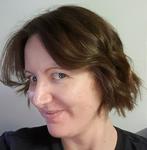Decide What to Train and Focus Your L&D Efforts On With Develop
Are you a learning and development professional or in charge of training? Is it a challenge to quickly and easily know what specific, science-backed skills your team leaders and managers need support in at any given point in time?
Stop guessing what to train. Stop chasing fads or trends. Stop basing training on casual conversations.
Start making your culture a growth-oriented, continual improvement organization. Our TEAM survey is based on 17 dimensions with long-standing support in the IO psychology literature. These are the behaviors of high-performing, highly engaged teams.
Develop by Criteria makes it a snap. After you’ve configured your system, you will be able to launch our TEAMscan with the teams and/or departments of your choosing, or launch at the level of the entire organization.
Then, with just a few minutes of your employees' time, you’ll have an accurate snapshot of the areas and dimensions where people (team members) feel their teams and managers are performing their best, and the areas where they are struggling or have room for growth.
If you do this regularly (we suggest quarterly), you can get a very quick, very accurate snapshot of how the company (or a given department, team, or group of teams) are doing.
You’ll also be able to see specific comments AND get a summary of the main themes from those comments generated by AI (assuming your admin has turned this on).
Suggested Process:
- Decide on your “unit” of experimentation (e.g. do I want to focus on measuring learning and development needs around teamwork at the single team, groups of teams, departments, or full organization level).
- Decide on the “length or interval of measurement (e.g. will you run 2 week experiments, monthly, quarterly, or semi-annually).
- Hint: for larger units of experimentation (departments or the entire organization), we suggest quarterly frequency
- For smaller units (e.g. teams), we suggest 2-6 weeks
- These allow for continual learning. This is meant to be quick and lightweight.
- Regularly measure teamwork. Use each measurement cycle to drive through the stages of growth:
- Reflection
- Conversation
- Create an action plan
- Connect it to existing meetings and processes
- Set a check-in date

